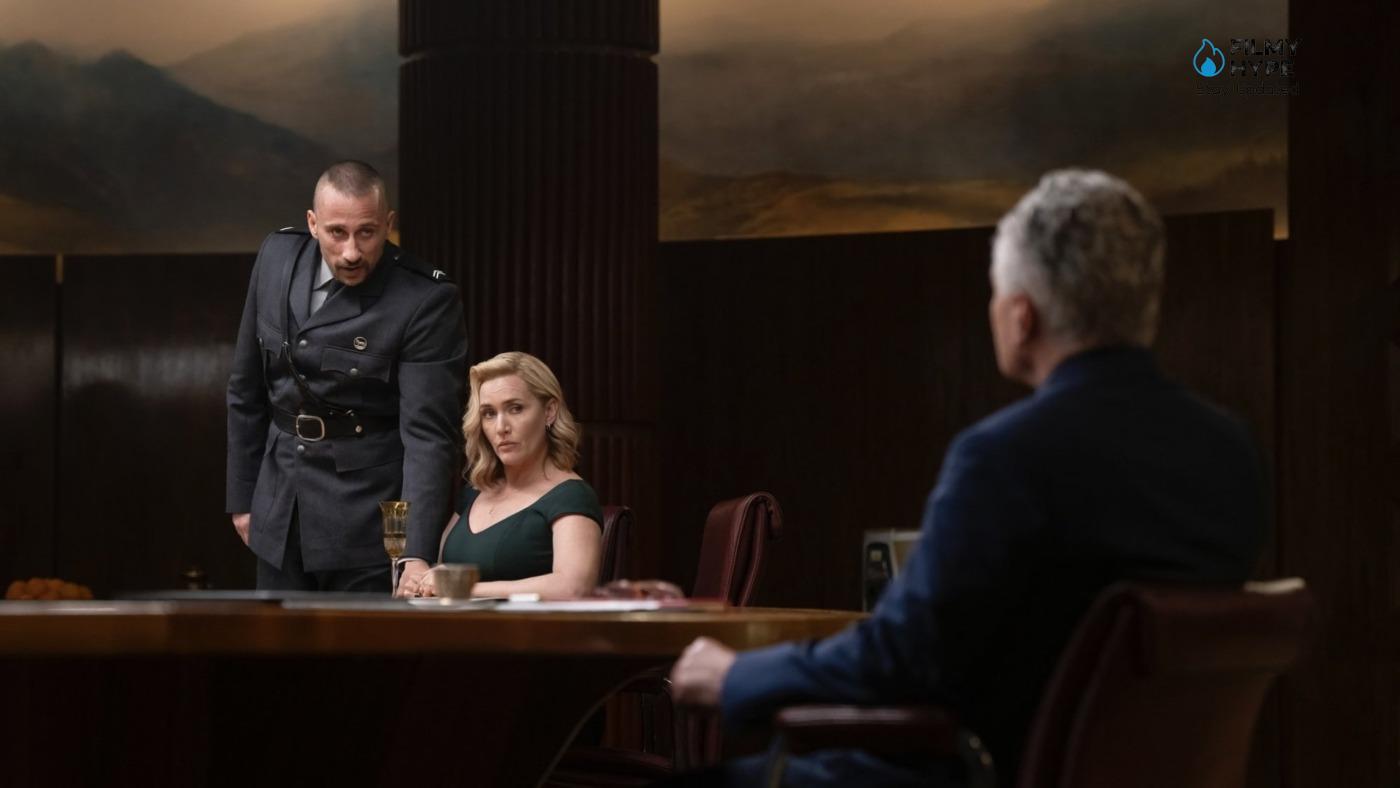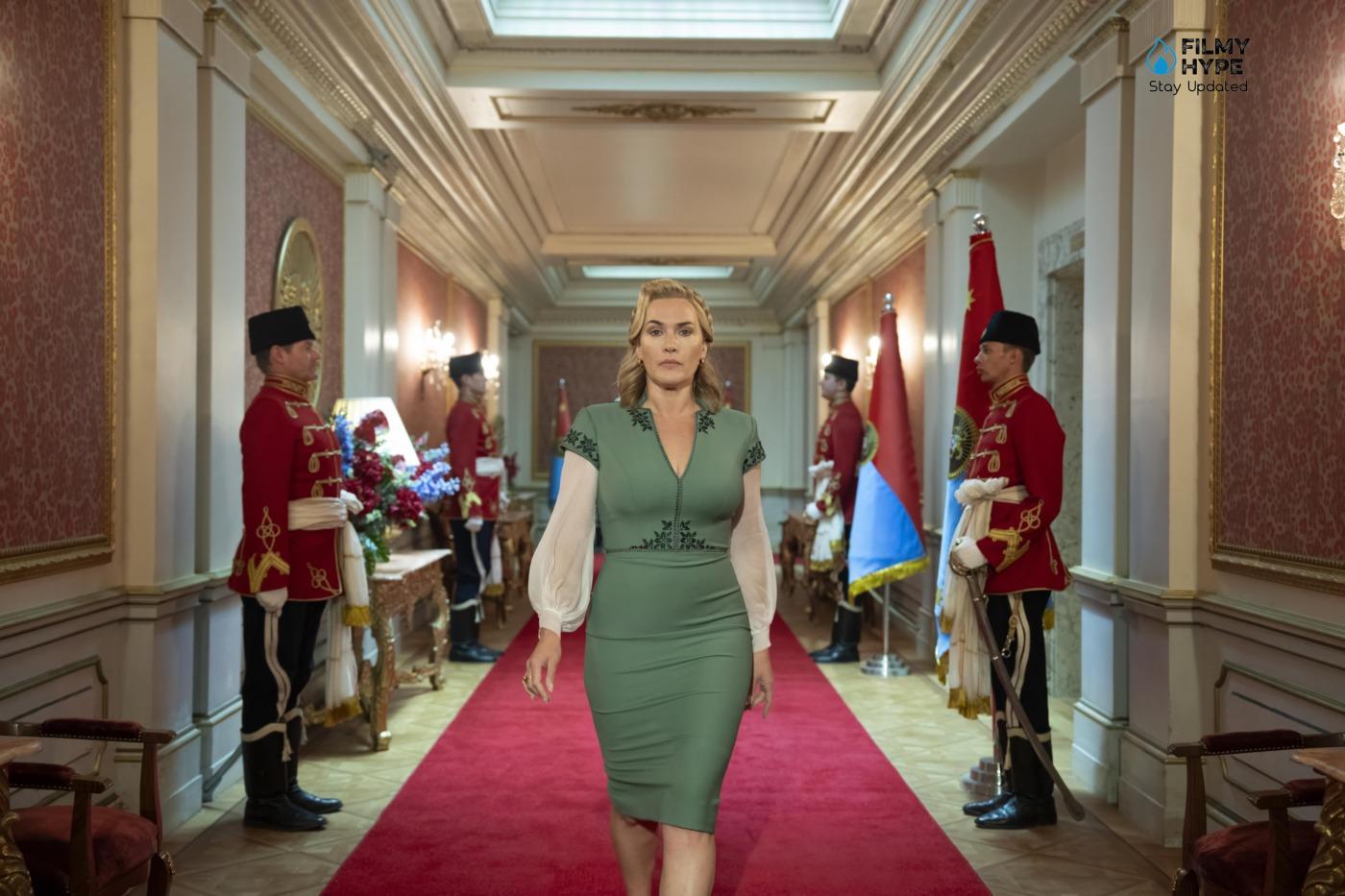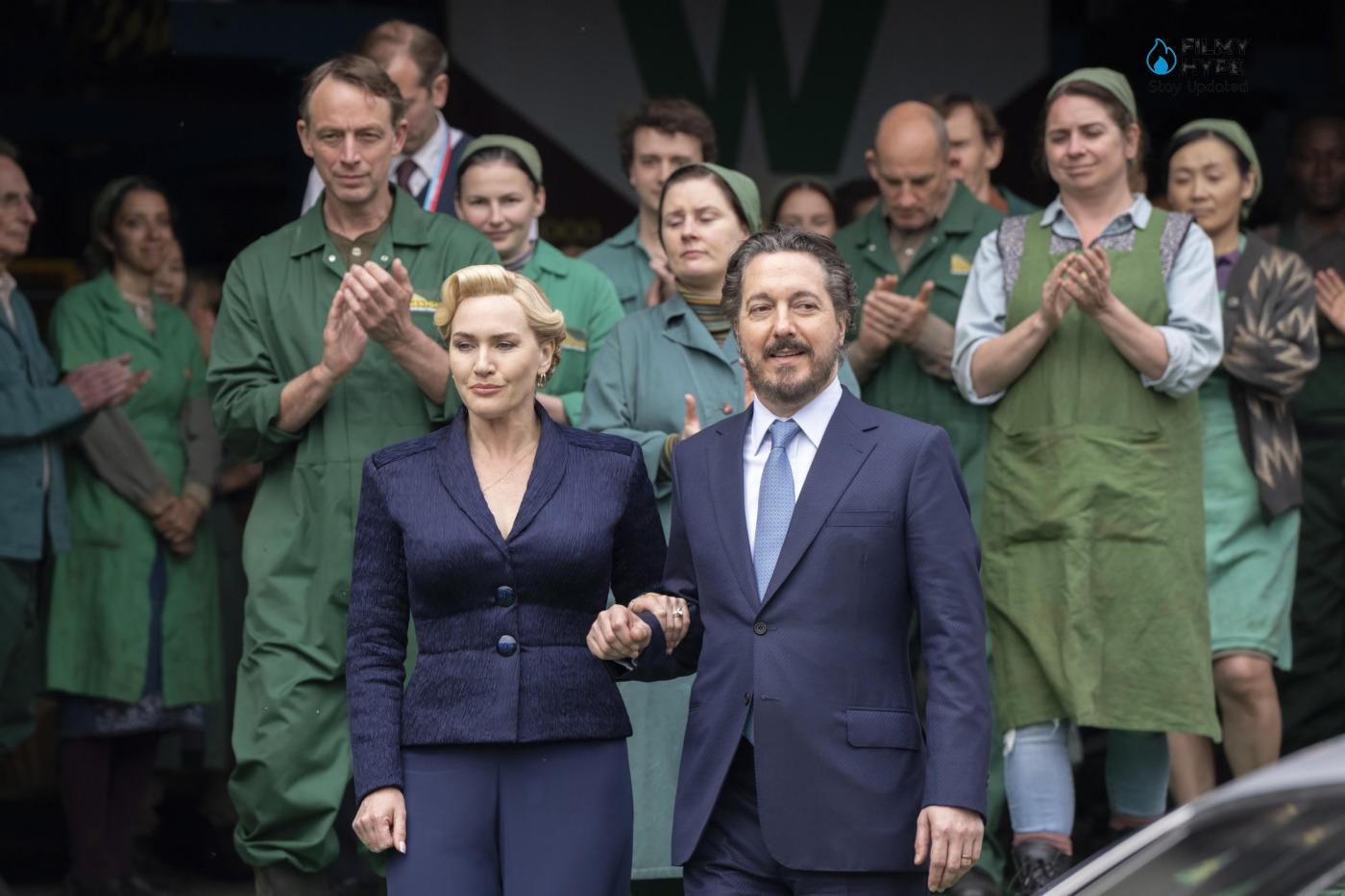The Regime Ending Explained: Kate Winslet Teaches How to Destroy A Country And Not Die Trying?
When The Regime began on HBO with Kate Winslet at the helm, expectations were very high. After all, the Titanic star had only been on the small screen for two masterpieces of the medium such as Mildred Pierce and Mare of Easttown, also on HBO. Very soon we realized that The Regime, despite a brilliant Kate Winslet, was not up to par. Between drama and comedy, characters full of the most odious charisma move in the same way. Throughout the 6 episodes, the series has featured great performances, impeccable production, and several truly notable script twists, but it ends up not saying everything it seems it wanted to say. It is both a political parody and a character portrait, but it does not seem to reach a more than predictable ending on both sides. The Regime is a strange series, which takes risks and does not come out unscathed.

At least, as far as his work as a chancellor with some mental disorder in a fictional Central European country is concerned. Whether the series will eventually be praised or loathed is less clear. The first reviews after its premiere on March 3 already attested to this with two conflicting positions: that of those who were amazed by an exaggerated political satire in which each one is worse than the last and that of those who did not enter this game invented by screenwriter Will Tracy and produced by those who gave us Succession. Just with that first episode in which we were introduced to a dictator obsessed with the mold in her palace, with servants trying not to make her angry, with a socially divided country, and with a new companion, a corporal played by Matthias Schoenaerts and hired to serve it, it became clear what awaited us and, equally, each episode has not ceased to surprise us until an ending that could not have gone any other way.
The Regime: The Story Plot
The Regime tells the story of a fictional nation, led by the steady hand of Elena Vernham (Kate Winslet), the chancellor at the heart of executive and direct power. The focal center of Elena’s “kingdom” is the very rich palace in which she lives surrounded by her loved ones and the people who work with and for her. It is an enormous mansion with a Renaissance and decadent style in which it is not difficult to trace the same opulent style that distinguishes the Royal Palace of Caserta and that of Versailles, to give two examples. The greatness of the place, then, reflects directly on the government of a chancellor who has chosen to keep her closest allies close, without ever abandoning its walls in favor of direct meetings with the outside world. Such a daily life, together with enormous responsibilities and daily stress, soon transformed the protagonist of The Regime into a woman in conflict with herself, whose mental instabilities push her towards sensations and disorders in this sense on the agenda.

Whether it’s crazy hypochondria or the purest paranoia, Elena carries forward her vision, which is always supported in every way. The situation, however, seems to evolve unexpectedly when we see her hire Herbert Zubak (Matthias Schoenaerts), an ex-military who earned the nickname Butcher following a bloody massacre of civilians on the battlefield. The contact between the two, completely different, seems to lead to a particular subcutaneous understanding with completely unexpected implications. Zubak’s violent firmness finds a respectable place in the mental insecurities of Elena who seems to draw certainty from the hard and insanely authoritarian character of the Butcher. Not only that, but her desire for power will also soon lead to some very questionable political choices, ready to undermine the already precarious general stability and reliability of her image in people’s eyes.
The Regime Ending Explained: Kate Winslet Teaches How to Destroy A Country And Not Die Trying?
The last episode begins with the two protagonists emerging from a trapdoor in an open field destroyed by flames. Let us remember that, after taking the country’s instability to its limit while Elena (Winslet) continues in the dark (this time worried, not about the mold, but about the menopause that makes her sweat while the rest of the palace lives frozen), in the penultimate episode, the situation ends up inevitably exploding. While in the palace the chancellor can decide to abandon the position and leave it to her faithful companion and lover Herbert (Schoenaerts), her resignation speech is interrupted by the rebels, who manage to take the palace and kill more than one of the protagonists along the way (the saddest death, without a doubt, that of Agnes, played by Andrea Risebourough, just when she was going to take her son to France to escape from Elena). The couple manages to escape thanks to Herbert’s training as a soldier and, after being abandoned by their own government, who had also already begun to consider the idea of betraying her, here we have them, in the middle of their own country, fleeing from their own country. home and looking for a way to survive while a curfew is declared and a reward for delivering the chancellor alive.
Between Politics and Love?
Convinced that she still has followers and that the country does not hate her, the chancellor chooses to trust a citizen who promises to take her and her lover in his car to his house and protect them while they find a way to flee to Switzerland, where her husband (Guillaume Gallienne) on Christmas retreat. However, the driver betrays them, locks them in a room, and sends the rebels after them. But who appears to settle accounts is none other than Laskin (Danny Webb), the head of the security service. Separated in two different rooms, he makes each believe that the other has betrayed him in an attempt to get Elena to agree to give a statement in which she acknowledges her crimes. However, the chancellor has a moment of lucidity, showing that she is not as crazy as she seems, and reads between the lines that Laskin still does not have the country’s full support.

Once he tortures her by making her smell the mold that she hates so much, the dictator accepts the conditions but, when she is going to be transferred, all of them are attacked by some soldiers who kill her companions and take her and Herbert to a hotel next to the airport. There Bartos (Stanley Townsend), one of the great defenders of the association that Elena hated so much between her country and the United States, awaits them, who offers them clothing and shelter. Her offer to the chancellor is clear: be the face of change, put aside the negotiations she was carrying out with China, agree to establish a relationship with America, and, above all, get rid of her beloved corporal who put her in this desperate situation. firstly, with his political ideas in favor of the working class. That is, betrays her confidant and lover and takes back the reins of her country. After negotiating with Bartos, Elena speaks with Herbert, and both affirm to the other that they have not betrayed their union. The chancellor tells him about her plans to get rid of Bartos, gain power with her beloved corporal, and begin reconstruction. However, it is all a lie. When he is sleeping next to her, he is cruelly murdered.
The Resurgence of the Chancellor?
The last images take place nine years later. Elena and her husband prepare for her to give a speech on what is known as Victory Day, which commemorates the resurgence of her regime after what is known as Annus horribilis. In a moment of intimacy, he asks her why it happened, to which she responds: “Maybe I faltered a little”. In her speech to the nation, the chancellor reflects on the path that has led them there, speaking of “dark forces” that led to that weakness, with the previous chancellor (Hugh Grant whom we regret seeing die quickly at the hands of Elena), the radical left, the corrupt security service and the threat of China (that alliance that she so defended).
She also dedicates a few words to her own cabinet and her lover, “people whom I valued, individuals who claimed to think only of the interests of the working class but who in the end could not be trusted. I can only be grateful to have seen their nature before it was too late and to have been able to avoid an irremediable catastrophe”. The last scene shows us the chancellor going to visit Herbert’s grave, whom she has exposed as she once had his father before his coffin was destroyed in the coup d’état. A new Europe is before them. Let it not be said that we have learned from past mistakes.





